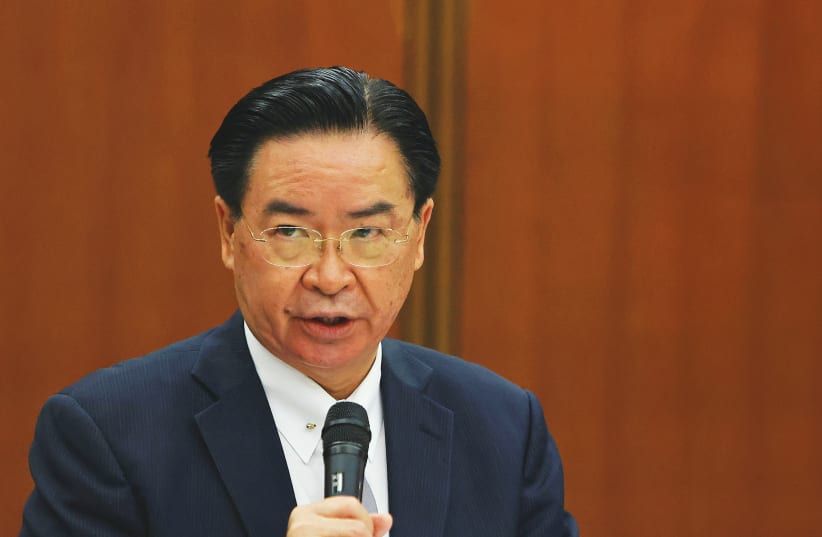As new technological tools emerge, cyberattacks are quickly becoming the top challenge facing democracies around the world. How to respond to this trend has dominated discussions in forums ranging from the G7 to the Halifax International Security Forum.
The Biden administration in the United States is putting together a comprehensive cybersecurity plan, after recent attacks against critical infrastructure and business networks underscored its vulnerabilities.
But cyberattacks don’t take place out of thin air. They require coordination, sophistication and resources. They are often driven by malicious actors, including regimes around the world that hold an interest in undermining and destabilizing democracies.
We see this clearly in Taiwan, where we are one of the top targets of cyberattacks anywhere in the world. Our cybersecurity agency estimates that we face about 30 million cyberattacks every month – an average of 700 attacks every minute. About half of these originate from China.
While the vast majority of these attacks have been unsuccessful, gaps remain. Last August, our Investigation Bureau said at least 10 government agencies and 6,000 official e-mail accounts had potentially been compromised by attackers connected to the Chinese Communist Party.
Several of our major petroleum and semiconductor companies – which are integral to our economic autonomy – were recently hit by attackers from China, which has been identified by the US and UK as likely connected the PRC’s Ministry of State Security.
Taiwan also faces a new threat: disinformation. While the complexity of network intrusions and ransomware attacks limits the scope and number of malicious players, disinformation poses a much more complex challenge; anyone with a smartphone and basic editing tools can take part.
Prior to 2020, Taiwan was already cited as the country most exposed to disinformation from foreign sources. These trends have been further exasperated by the coronavirus pandemic, with an estimated one-fourth of pandemic-related disinformation believed to have come from China.
We understand their motivations. They hold a vested interest in destabilizing our democracy, society and government institutions in order to promote their brand of authoritarianism. The rest of the democratic world should heed our lessons and prepare themselves.
While Taiwan’s challenges are daunting, there is a silver lining. Because of our experiences, we are more prepared than ever. We have valuable lessons that can be shared with other like-minded nations around the world.
The US is one country with which we are closely cooperating. In 2019, we worked with the US to hold cybersecurity exercises, simulating threats posed by malicious actors. Furthermore, we have jointly held regional workshops on strengthening network security, media literacy and deterring disinformation, under the Global Cooperation and Training Framework initiative.
Last July, Taiwan and the US also held a comprehensive cybersecurity forum in Taipei, discussing issues ranging from emerging threats and technological trends to opportunities for cross-border collaboration. Both sides agreed that all sectors should work together to “form an unbreakable knot.”
We are seeing greater judicial cooperation between the two sides, meaning perpetrators are being brought to justice more quickly. Close coordination between our Investigative Bureau and the FBI have already led to indictments against perpetrators responsible for attacks on our petroleum and semiconductor industries.
We also see opportunities to work together with Israel, an international leader in cybersecurity and emerging technologies. We are deeply impressed by Prime Minister Bennett’s initiative to form a joint global cybersecurity network. Addressing common threats together enhances the security and resiliency of all democracies around the world.
Taiwan looks forward to working with the Israeli government to identify potential areas of collaboration. We are eager to share our experiences and lessons learned, particularly in terms of combating advanced persistent threats, while benefiting from Israel’s world-renowned expertise in innovation, technology and cross-sectoral cooperation.
Due to the pandemic, Taiwan’s experts were not able to participate in-person in this year’s Cyber Week at Tel Aviv University. But as partners and fellow democracies, we hope to seek future openings to partner with Israel in addressing some of the most pressing challenges of our time.
Audrey Tang is Taiwan’s digital minister. Joseph Wu is Taiwan’s foreign minister.
